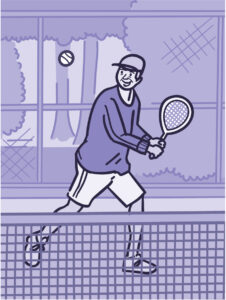Nursing Process Assessment
- Symptoms may be categorized by degree of severity.
- Stage 1. Hypomania: Symptoms not sufficiently severe to cause marked impairment in social or occupational functioning or to require hospitalization
- Cheerful mood
- Rapid flow of ideas; heightened perception
- Increased motor activity
- Stage 2. Acute mania: Marked impairment in functioning; usually requires hospitalization
- Elation and euphoria; a continuous “high”
- Flight of ideas; accelerated, pressured speech
- Hallucinations and delusions
- Excessive motor activity
- Social and sexual inhibition
- Little need for sleep
- Stage 3. Delirious mania: A grave form of the disorder characterized by an intensification of the symptoms associated with acute mania. The condition is rare because the advent of antipsychotic medication.
- Labile mood; panic anxiety
- Clouding of consciousness; disorientation
- Frenzied psychomotor activity
- Exhaustion and possibly death without intervention




